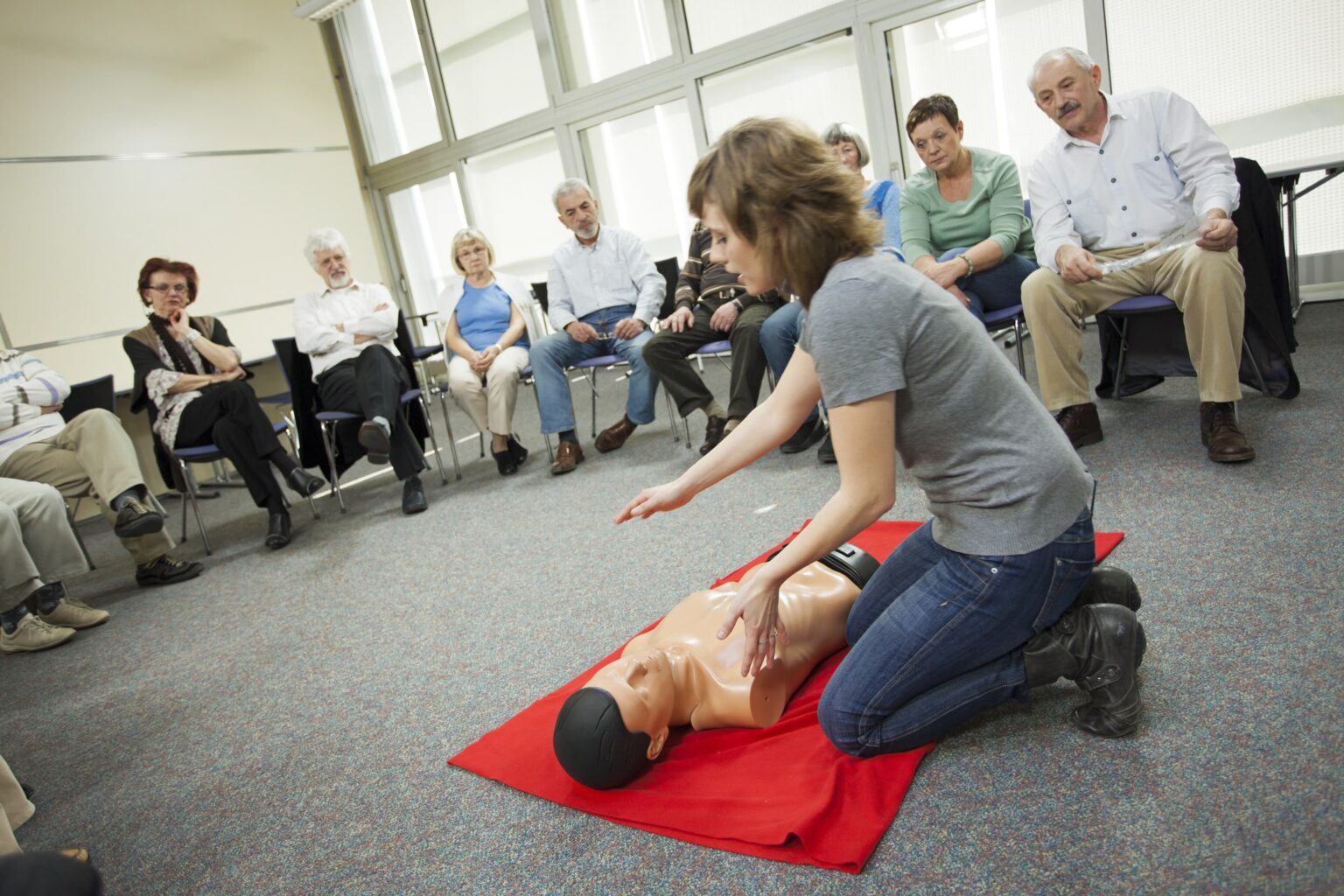American Heart Association© Group CPR Discount Classes in Napa

About Group CPR Discount Classes in Napa
Safety Training Seminars can come out to your place of business at any time on any day of the week to conduct BLS, CPR, and First-aid training courses. Our friendly instructors arrive on time, and bring out all the necessary supplies and equipment to conduct a fun and informative safety training course.
Alternative: If organizing a class at your location is complicated, you can send your staff out to take classes at one of our 57 offices located throughout Northern California.
Ask about Promo Code discounts.
More Information About Group Classes
Group CPR Training Classes in Napa: Empowering Communities
Group CPR training classes in Napa provide essential life-saving skills to individuals and organizations, empowering them to respond confidently and effectively in emergencies. These classes, offered by reputable organizations like the American Heart Association (AHA) and other certified providers, cater to various groups, including healthcare professionals, workplaces, schools, and community organizations. This article explores the importance of group CPR training, the offerings in Napa, and the impact these classes have on emergency preparedness and community safety.
The Importance of Group CPR Training
Cardiac arrest can happen to anyone, anywhere, at any time. In such critical moments, the ability to perform CPR (Cardiopulmonary Resuscitation) can mean the difference between life and death. Group CPR training equips individuals with the knowledge and skills to recognize cardiac emergencies, perform CPR, and use automated external defibrillators (AEDs) effectively. By training groups of individuals together, these classes create a network of responders ready to act in emergencies.
Benefits of Group Training
Group CPR training offers several benefits over individual training. It allows participants to learn and practice CPR in a team environment, simulating real-life scenarios where coordination and communication are crucial. Additionally, group training can be tailored to the specific needs of the organization or group, ensuring that participants receive relevant and practical instruction.
Impact on Emergency Preparedness
Group CPR training has a significant impact on emergency preparedness in Napa. By training groups of individuals, these classes create a community of responders who are prepared to act quickly and effectively in emergencies. This network of trained individuals can help improve survival rates for cardiac arrest victims and reduce the risk of long-term disability.
Community Safety and Well-Being
Beyond the immediate benefits of CPR training, these classes promote a culture of safety and well-being in Napa. By empowering individuals with life-saving skills, group CPR training contributes to a safer and more resilient community. Participants are not only prepared to respond to emergencies but also become advocates for CPR training and public health.
Conclusion
Group CPR training classes in Napa play a crucial role in equipping individuals and organizations with life-saving skills. By providing comprehensive CPR training to groups, these classes contribute to emergency preparedness, community safety, and overall well-being. Through collaboration, education, and advocacy, Napa continues to prioritize the importance of CPR training, ensuring that residents are prepared to respond effectively in emergencies.
FAQs
Who should attend group CPR training classes in Napa?
Group CPR training classes are suitable for anyone interested in learning life-saving skills, including parents, teachers, caregivers, healthcare professionals, and members of the general public.
How long do group CPR training classes typically last?
Group CPR training classes usually span a few hours, depending on the training provider and the depth of instruction. Classes typically include a combination of theoretical instruction, hands-on practice, and skill demonstrations.
Is there a renewal requirement for group CPR training certification?
Yes, CPR certifications are typically valid for two years, after which individuals are required to undergo renewal courses to maintain their certification. Renewal courses often include updates on guidelines and protocols, as well as opportunities to refresh and practice essential skills. Renewing CPR certification ensures that individuals stay current with the latest best practices in CPR and are prepared to respond confidently to emergencies.
